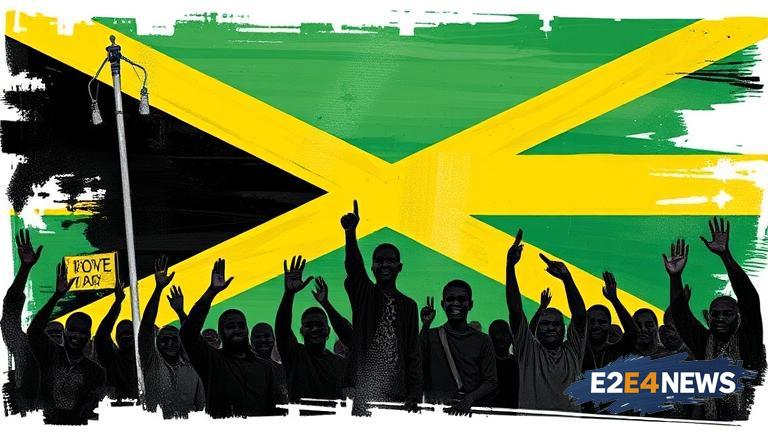The Jamaican electoral system is currently under scrutiny as the minority vote has become a significant concern for the country’s democratic stability. In a recent article, the Jamaica Observer highlighted the dangers of the minority vote and its potential impact on the country’s governance. The article noted that the minority vote can lead to a situation where a political party wins an election without receiving the majority of the votes. This can result in a government that does not have the support of the majority of the population, leading to a crisis of legitimacy. The article also pointed out that the minority vote can be influenced by various factors, including voter apathy, lack of education, and manipulation by political parties. Furthermore, the article highlighted the need for electoral reform to address the issue of the minority vote and ensure that the government represents the will of the majority. The Jamaican government has been criticized for its handling of the electoral system, with some arguing that it has failed to address the issue of the minority vote. The opposition parties have also been accused of exploiting the minority vote to gain power. The article concluded that the danger of the minority vote is a serious concern that needs to be addressed to ensure the stability and legitimacy of Jamaica’s democratic system. The country’s electoral commission has been urged to take steps to address the issue, including implementing electoral reforms and increasing voter education. The international community has also been called upon to provide support and guidance to Jamaica as it seeks to address the challenge of the minority vote. The issue of the minority vote is not unique to Jamaica, as many countries around the world face similar challenges. However, the situation in Jamaica is particularly concerning due to the country’s history of political instability and violence. The article noted that the minority vote can have serious consequences, including political polarization, social unrest, and economic instability. To address the issue, the article suggested that Jamaica needs to implement a system of proportional representation, which would ensure that all political parties are represented in the government. The article also called for increased voter education and awareness, as well as measures to prevent voter manipulation and fraud. Additionally, the article highlighted the need for political parties to work together to address the issue of the minority vote and ensure that the government represents the will of the majority. The Jamaican people have been urged to take an active role in addressing the issue, including participating in voter education programs and demanding that their political leaders take action to address the challenge. The article concluded that the danger of the minority vote is a serious concern that requires immediate attention and action. The future of Jamaica’s democratic system depends on the ability of the government and political parties to address the issue and ensure that the government represents the will of the majority. The international community has a role to play in supporting Jamaica as it seeks to address the challenge of the minority vote. With the right reforms and support, Jamaica can ensure that its democratic system is stable, legitimate, and representative of the will of the majority. The article also noted that the issue of the minority vote is closely linked to other challenges facing Jamaica, including poverty, inequality, and social injustice. Addressing these challenges will require a comprehensive approach that includes electoral reform, economic development, and social justice. The Jamaican government and political parties must work together to address these challenges and ensure that the country’s democratic system is stable and legitimate. The article concluded that the danger of the minority vote is a wake-up call for Jamaica to take action to protect its democratic system and ensure that the government represents the will of the majority.





